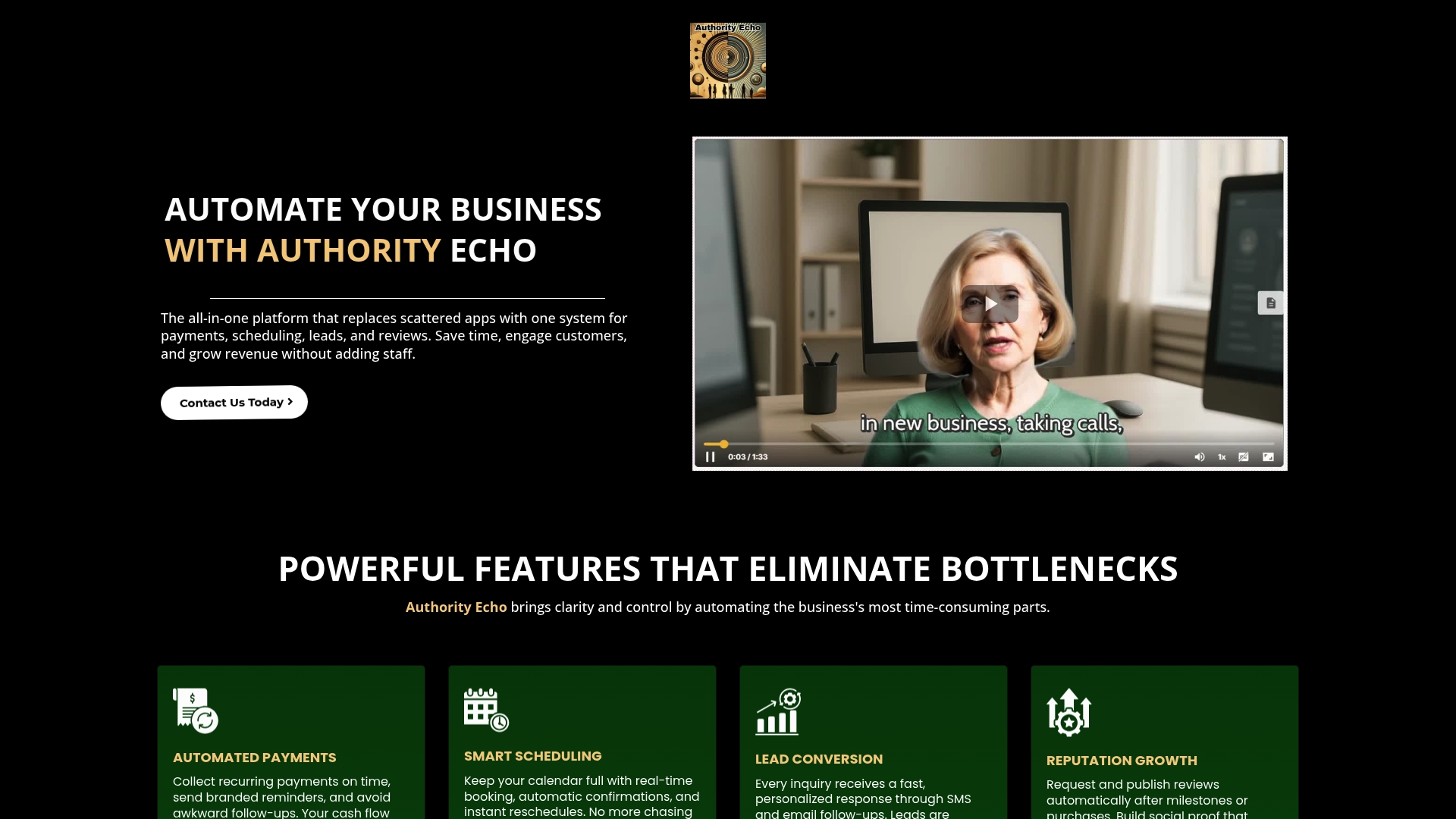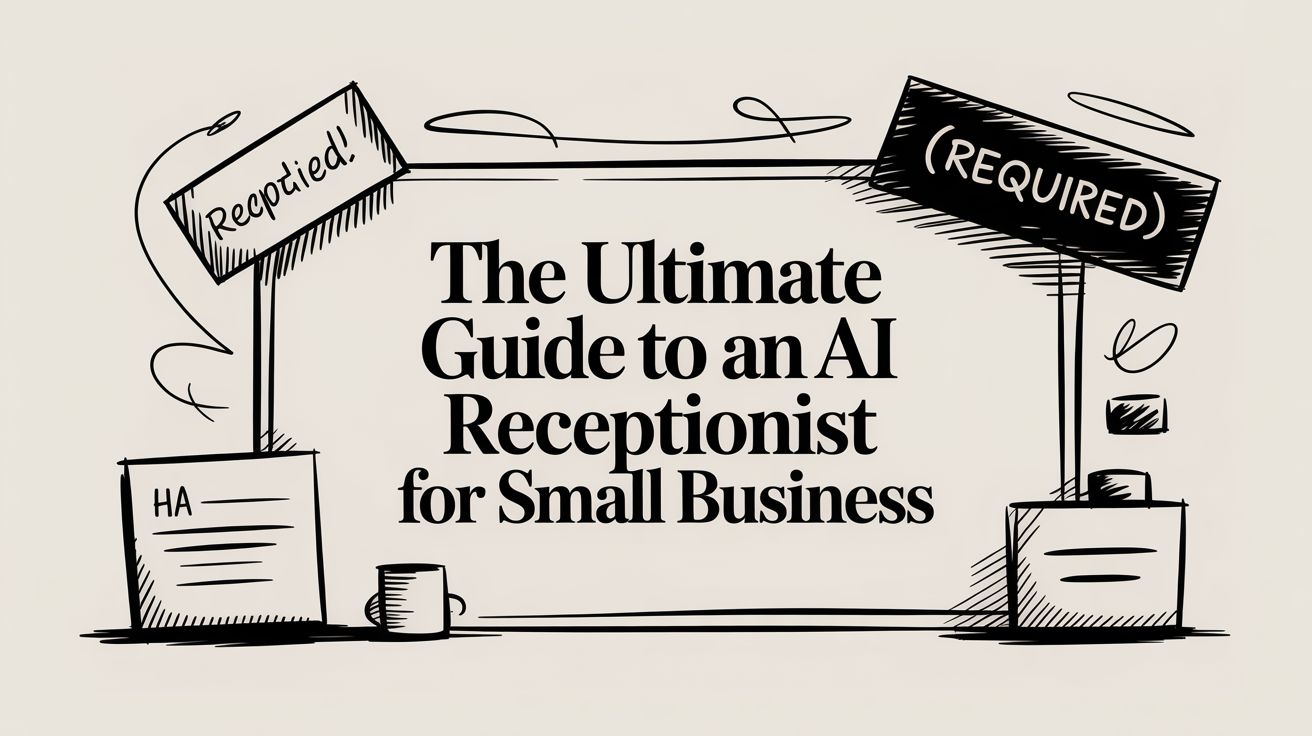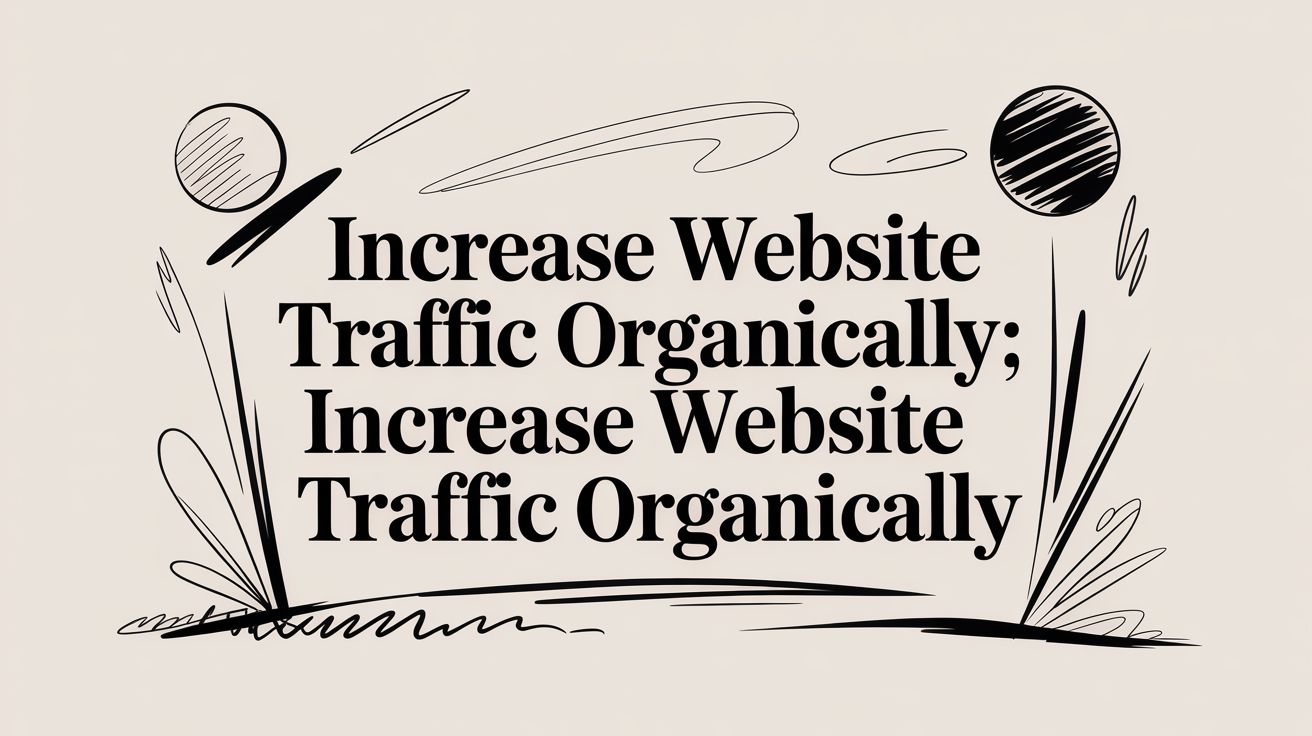What Is Appointment Scheduling Automation? Complete Overview

Every year, businesses lose billions to missed appointments and manual errors. Automated scheduling can cut no-shows by as much as 30 percent, saving both time and money for companies of every size. Keeping calendars aligned is crucial to reducing stress and keeping customers satisfied. Today, smart scheduling tools step in, letting businesses focus on service quality while enjoying fewer conflicts and improved efficiency.
Key Takeaways
| Point | Details |
|---|---|
| Efficiency Improvement | Automated scheduling systems can reduce appointment no-shows by up to 30% and increase customer satisfaction by over 20%. |
| Operational Advantages | Key functionalities include real-time availability tracking, automated reminders, and data analytics for optimized service. |
| Industry Applications | Various sectors benefit significantly, including healthcare, professional services, and education, by streamlining scheduling and enhancing client interactions. |
| Implementation Challenges | Organizations must avoid common mistakes like inadequate calendar integration and unclear booking rules to fully leverage automation benefits. |
Table of Contents
- Defining Appointment Scheduling Automation
- Types And Key Functions Explained
- How Automated Scheduling Tools Operate
- Business Benefits And Real-World Use Cases
- Common Mistakes And How To Avoid Them
Defining Appointment Scheduling Automation
Appointment scheduling automation transforms how businesses manage time-sensitive interactions by using sophisticated software to eliminate manual booking complexities. Think of it as a digital assistant that handles scheduling tasks with precision and efficiency, replacing traditional phone calls and paper calendars with intelligent, real-time booking systems.
According to research from industry analytics, automated scheduling systems deliver remarkable operational improvements. As insights from Gitnux reveal, these systems can reduce appointment no-shows by up to 30% and increase customer satisfaction by over 20%. Key capabilities include:
- Automatic time slot management
- Real-time availability tracking
- Instant confirmation and reminder notifications
- Multi-platform accessibility (mobile, web, email)
- Intelligent rescheduling options
In professional environments like healthcare, robotic process automation takes scheduling efficiency even further. Software bots can manage complex scheduling rules, handle urgent changes, and streamline administrative workflows. This technology not only saves time but also minimizes human error, allowing staff to focus on delivering high-quality services rather than getting lost in scheduling logistics.
While every business has unique scheduling needs, appointment scheduling automation represents a powerful strategy for modernizing customer interactions and optimizing operational productivity.
Types and Key Functions Explained
Appointment scheduling automation comes in various types, each designed to address specific business needs and streamline different aspects of time management. From simple online booking platforms to sophisticated enterprise-level systems, these solutions transform how businesses interact with clients and manage their operational workflows.
According to insights from Vizitorapp, automated scheduling systems offer several critical functions that dramatically improve operational efficiency:
- Real-time calendar synchronization: Eliminates scheduling conflicts
- Automated reminders and notifications: Reduces no-shows by approximately 35%
- Self-rescheduling capabilities: Empowers clients with flexible booking options
- Data analytics tracking: Provides insights into booking trends and service optimization
Research from DemandHub highlights additional strategic advantages of these systems. Beyond basic scheduling, these tools can significantly reduce manual data entry, improve booking accuracy, and even help businesses proactively manage their revenue streams. By leveraging features like automated wait-lists and intelligent slot-filling mechanisms, businesses can maximize their operational potential without additional administrative overhead.
The most effective scheduling automation solutions typically fall into three primary categories: cloud-based platforms, industry-specific systems, and integrated business management tools. Each type offers unique capabilities tailored to different operational scales and complexity levels, ensuring that businesses of all sizes can find a solution that perfectly matches their specific scheduling requirements.

How Automated Scheduling Tools Operate
Automated scheduling tools leverage advanced technologies to transform traditional booking processes into intelligent, seamless systems. At their core, these tools function like sophisticated digital assistants, continuously analyzing availability, managing time slots, and facilitating smooth communication between businesses and clients.
According to research from Simbo AI, AI-powered scheduling systems perform complex operations that go far beyond simple calendar management. Key operational mechanisms include:
- Real-time calendar synchronization
- Intelligent demand forecasting
- Automatic confirmation and reminder generation
- Secure, compliance-adhering communication protocols
- Predictive analytics for resource optimization
Insights from Global Nodes reveal that modern scheduling tools utilize sophisticated natural language processing and machine learning algorithms. These technologies enable 24/7 multilingual booking capabilities, proactively manage recurring appointments, and dynamically balance scheduling loads across different locations or service providers.
The underlying architecture of these systems typically involves complex integrations between user interfaces, backend databases, communication channels, and external calendar systems. By continuously learning from interaction patterns and user behaviors, automated scheduling tools become increasingly precise and personalized, ultimately reducing administrative overhead and enhancing overall operational efficiency.
Business Benefits and Real-World Use Cases
Appointment scheduling automation delivers transformative benefits across multiple industries, helping businesses streamline operations and enhance customer experiences. From small local clinics to large enterprise organizations, these intelligent systems provide strategic advantages that extend far beyond simple booking management.
Business sectors experiencing significant improvements through scheduling automation include:
- Healthcare: Reducing patient no-shows, managing complex appointment sequences
- Professional Services: Optimizing consultant and expert time allocation
- Fitness and Wellness: Managing class bookings and personal training schedules
- Education: Coordinating student consultations and academic advising
- Hospitality: Streamlining reservation processes and customer communication
The most compelling benefits center around operational efficiency and enhanced customer satisfaction. Automated scheduling tools eliminate manual administrative tasks, reduce human error, and provide 24/7 booking capabilities that meet modern customer expectations. Small businesses especially benefit by gaining enterprise-level scheduling capabilities without significant infrastructure investments.
Real-world implementation demonstrates how these tools create tangible value. A local physiotherapy clinic might use automated scheduling to send appointment reminders, manage waitlists, and automatically fill canceled slots. A consulting firm could leverage the system to coordinate multi-participant meetings across different time zones, while a wellness center could implement intelligent rescheduling that adapts to client preferences and availability. These practical applications highlight how scheduling automation is no longer a luxury, but a strategic necessity for businesses seeking competitive advantage.

Common Mistakes and How to Avoid Them
Appointment scheduling automation can dramatically improve business operations, but many organizations stumble when implementing these systems. Understanding common pitfalls is crucial for maximizing the potential of scheduling tools and avoiding potential disruptions to your workflow.
According to insights from Vizitorapp, one of the most critical mistakes is inadequate calendar integration. This oversight can lead to significant scheduling conflicts and customer frustration. Key mistakes to watch out for include:
- Failing to synchronize calendars across multiple platforms
- Neglecting to set clear booking rules and time constraints
- Overlooking customization options for different service types
- Not implementing proper reminder and confirmation systems
- Ignoring data privacy and security requirements
The consequences of poor scheduling automation can be substantial. Double bookings, missed appointments, and communication breakdowns can erode customer trust and create operational chaos. Businesses should invest time in thoroughly testing their scheduling systems, ensuring seamless integration with existing calendars, and creating flexible yet precise booking parameters.
To mitigate risks, implement a phased approach to scheduling automation. Start by mapping out your specific booking requirements, test the system extensively with a small group, and gradually roll out to your entire organization. Pay special attention to user experience, ensuring the system is intuitive for both staff and clients. Remember, the goal is to simplify scheduling, not create additional complexity that frustrates users and undermines the benefits of automation.
Here’s a summary of common mistakes and how to avoid them:
| Mistake | Consequence | How to Avoid |
|---|---|---|
| Poor calendar integration | Double bookings Conflicts |
Sync all systems |
| Unclear booking rules | Misunderstandings Confusion |
Set clear policies |
| Lack of customization | Inflexible bookings | Configure for each service |
| Missing reminders/confirmations | Missed appointments | Automate notifications |
| Ignoring data security | Privacy breaches | Ensure compliance |
Ready to Eliminate the Headaches of Manual Scheduling and See Results?
Are you tired of dealing with missed appointments, double bookings, or hours wasted on manual schedule management? The article highlights just how overwhelming it can be when systems lack real-time availability, automated reminders, and tight integration. If optimizing customer interactions and streamlining your internal operations are key goals for your business, now is the perfect time to take control. Discover how Authority Echo can transform these daily struggles into growth opportunities for your service business.

Let Authority Echo’s all-in-one platform work for you with automated scheduling, real-time calendar syncing, and AI-powered reminders. Get fewer no-shows, faster bookings, and more time for your clients, all in one place. Visit Authority Echo to experience true operational ease. Start your journey toward higher efficiency and customer satisfaction today.
Frequently Asked Questions
What is appointment scheduling automation?
Appointment scheduling automation refers to software solutions designed to simplify the process of scheduling appointments by eliminating manual booking complexities. This technology manages scheduling tasks efficiently, replacing traditional methods like phone calls and paper calendars.
How can appointment scheduling automation benefit businesses?
Businesses can benefit from appointment scheduling automation by reducing no-shows, increasing customer satisfaction, and optimizing operational efficiency. Automated systems offer features like real-time availability tracking, automatic reminders, and data analytics to enhance overall productivity.
What types of businesses can utilize appointment scheduling automation?
A wide range of businesses can utilize appointment scheduling automation, including healthcare providers, professional services, fitness and wellness centers, educational institutions, and hospitality services. These systems help streamline operations across various industries.
What common mistakes should businesses avoid when implementing scheduling automation?
Common mistakes include inadequate calendar integration, unclear booking rules, lack of customization, missing reminder systems, and ignoring data security requirements. To avoid these pitfalls, businesses should test their systems, ensure proper synchronization, and define clear booking protocols.




